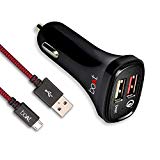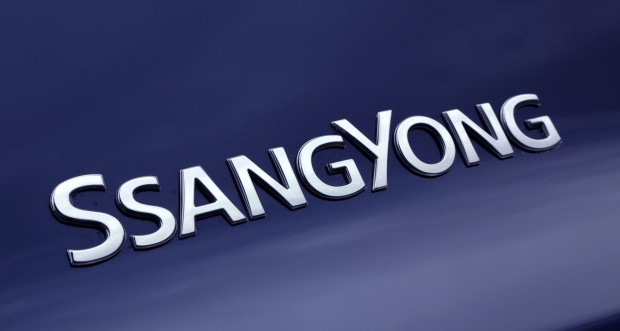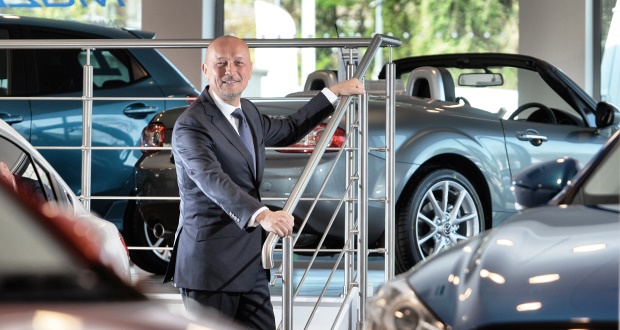The auto industry is going through massive change — and Tesla and its outspoken CEO, Elon Musk, are seen as the great disruptors. But as Ford CEO Jim Hackett pointed out during a recent interview for CNN Business’ The Table with Poppy Harlow in Detroit, his company caused, arguably, the biggest industrial disruption of the… Continue reading Ford CEO: We were disrupting the auto industry long before Elon Musk – CNN
Tag: Renault
Slovenia part of European e-mobility project
The project is led by the French car maker Renault, while ELES is a coordinator in the part of the project concerning the electricity transmission system.The solutions include smart two-way vehicle charging, dynamic wireless charging lanes in urban centres, dynamic wireless long-distance charging and super fast charging stations for European road corridors.The participants include equipment manufacturers, vehicle charging technology providers, ICT and road infrastructure companies, national grid operators and power distributors, among others.
Nissan Kicks XE diesel launched, base variant starts at Rs 9.89 lakh
NEW DELHI: Nissan on Wednesday launched the Kicks XE diesel variant of its intelligent SUV in India at Rs 9.89 lakh (ex-showroom). The SUV gives a premium feel with spacious interiors and stylish exteriors. Kicks XE Diesel, the base variant, comes loaded with over 50 features including Auto AC with rear AC vent, Dual Airbags,… Continue reading Nissan Kicks XE diesel launched, base variant starts at Rs 9.89 lakh
Ssangyong adds Rogate dealership to its UK network
Ssangyong has added Rogate Ssangyong to its UK dealer network. Rogate SsangYong, located on the A272 between the towns of Petersfield and Midhurst, has been established as a Renault franchised dealer since 1979. During this time, the dealership has won various awards for its customer service and, more recently, for an industry leading apprenticeship programme.… Continue reading Ssangyong adds Rogate dealership to its UK network
Brayleys hits acquisition trail with Thames Honda deal
Hertfordshire-based Brayleys Cars has bought Thames Honda for an undisclosed sum. It is Brayleys’ first acquisition since the Dubai-based AW Rostamani Group became its majority shareholder in 2018. The Honda dealerships are located in Ruislip, Ewell, Leatherhead and Thames Ditton. They join Brayleys’ three existing Honda franchises in Enfield, St Albans and Hemel Hempstead. Brayleys,… Continue reading Brayleys hits acquisition trail with Thames Honda deal
Nissan and EVgo expand charging network with 200 new EV fast chargers
Searching for your content…
No results found. Please change your search terms and try again.
In Flins, Renault employees are worried about the relocation of the Clio
What future for Flins? In this factory Renault Yvelines on the banks of the Seine, the question is in everyone’s mind. Since the 4,500 employees of the site have learned six months ago that the assembly of the new Clio would be relocated to Turkey and Slovenia , They are worried. Because they do not… Continue reading In Flins, Renault employees are worried about the relocation of the Clio
French automobile production will suddenly fall in 2020
The automobile is a business of cycles, and some are more exciting than others. After a few years of thinning that allowed the Hexagon to return to the European podium of car production , France will know a brutal blow of stop next year. The level of production of all automotive plants will fall by… Continue reading French automobile production will suddenly fall in 2020
‘Curbing car imports won’t kill competition’
Assemblers of 660-1,000cc cars are lucky in the sense that the market is now getting wide open for them to take advantage of shrinking used car imports.Iconic Suzuki Mehran (800cc) continued to sail smoothly in the presence of imported 660cc used cars like Daihatsu Mira, Daihatsu Move, Nissan Dayz, Nissan Moco, Suzuki Alto, Suzuki Hustler and commercial picks of Daihatsu, Suzuki and Nissan.Some analysts fear that controlling used car imports will strengthen the monopoly of local assemblers that jack up prices multiple times every year citing the exchange rate movement.
FIRST-HALF 2019 RESULTS: RCI BANK AND SERVICES MAINTAINS A HIGH-LEVEL SALES AND FINANCIAL PERFORMANCE IN A SHARPLY DECLINING AUTOMOTIVE MARKET
Despite the downturn in the automotive sector, RCI Bank and Services stabilized its volume of financing contracts, set a new penetration rate record[1] and continued to develop its services activity. RCI Bank and Services continues performing financially at a record level in the first-half of 2019. 918,504 new financing contracts, for a total of… Continue reading FIRST-HALF 2019 RESULTS: RCI BANK AND SERVICES MAINTAINS A HIGH-LEVEL SALES AND FINANCIAL PERFORMANCE IN A SHARPLY DECLINING AUTOMOTIVE MARKET



